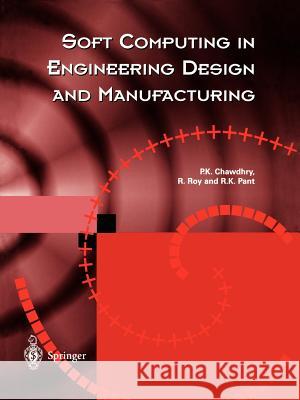Soft Computing in Engineering Design and Manufacturing » książka
Soft Computing in Engineering Design and Manufacturing
ISBN-13: 9783540762140 / Angielski / Miękka / 1997 / 480 str.
Soft Computing has emerged as an important approach towards achieving intelligent computational paradigms where key elements are learning from experience in the presence of uncertainties, fuzzy belief functioos, and .evolutioo of the computing strategies of the learning agent itself. Fuzzy, neural and evolutionary computing are the three major themes of soft computing. The book presents original research papers dealing with the theory of soft computing and its applicatioos in engineering design and manufacturing. The methodologies have been applied to a large variety of real life problems. Applicatioo of soft computing has provided the opportunity to integrate human like 'vagueness' and real life 'uncertainty' to an otherwise 'hard' computer programme. Now, a computer programme can learn, adapt, and evolve using soft computing. The book identifies the strengths and Iimitatioos of soft cOOlputing techniques, particularly with reference to their engineering applications. The applications range fran design optimisatioo to scheduling and image analysis. Goal optimisatioo with incomplete infmnatioo and under uncertainty is the key to solving real-life problems in design and manufacturing. Soft computing techniques presented in this book address these issues. Computatiooal complexity and efficient implementatioo of these techniques are also major concerns for realising useful industrial applications of soft computing. The different parts in the book also address these issues. The book cootains 9 parts, 8 of which are based 00 papers fran the '2nd On-line World Conference 00 Soft Computing in Engineering Design and Manufacture (WSC2), ."











